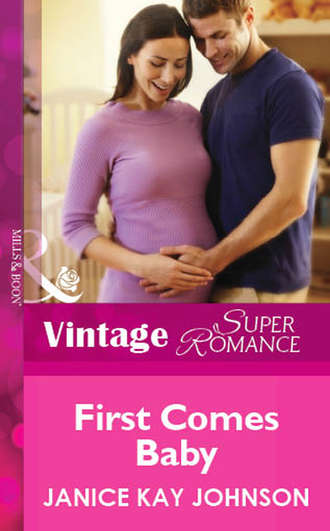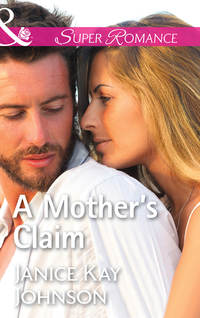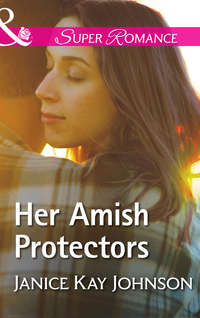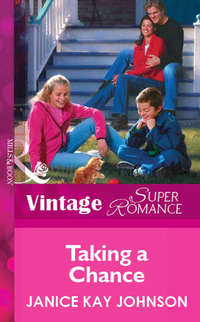
Полная версия
First Comes Baby
Okay, this she’d tell him. She didn’t like explaining herself, hated the idea of having to tell him to butt out, it was none of his business. But secrecy would bother him more, she knew it would.
Typical Caleb, he’d found a parking spot on the street not half a block from the Drohman Tower where she worked. Nobody found street parking at this time of day downtown.
Nobody but Caleb, charmed as always.
“How was your trip?” she asked, once he’d pulled out into traffic.
“Really good. Haiti is always depressing. The poverty.” He shook his head. “But I’m excited about the cooperative we’ve got going there. Not just drum art, although the artisans in the group are making some wall sculptures that are different from the more common ones. But we’ve added a guy who makes the most extraordinary stone sculptures. Wait’ll you see them.”
In college, Caleb had been determined to work for a humanitarian organization like Save the Children. But during his time in Ecuador with the Peace Corps, he’d had what he’d described as a revelation. Outside aid wasn’t the key, self-sufficiency was. Every country in Latin and South America had unique, beautiful crafts that would bring high prices from Americans if they were made accessible to them. Instead of just buying from artists, he helped organize cooperatives, often village- and even region-wide with profit sharing. Some were comprised only of women, many of whom had lost their husbands to war.
Caleb had started with a tiny store on University Avenue in Seattle, expanding it within a year and adding a second two years later in Portland. Now he had another in upscale Bellevue and a fourth in Tacoma, with a fifth planned for San Francisco. He also put out a catalog and sold through a Web site. He made a good living but passed on profits to the artisans in the cooperatives on a scale that stunned Haitians and Guatemalans who were accustomed to getting pennies for work that sold for a hundred dollars in the United States.
Caleb loved what he did and what he’d accomplished. Every time she saw him, Laurel felt an ache of regret and disappointment in herself. Her dreams had been as vivid as his, and now where was she? Working a nine-to-five job, getting through each day as well as she could.
Choosing to become a mother was the first decision she’d made in a long time that looked ahead, that said, I have hope. Maybe, just maybe, Caleb would be glad for her.
Traffic on I-5 was stop-and-go. Laurel could have gotten home nearly as fast on the bus that ambled down Eastlake and through the University District. But she didn’t care if the traffic ever opened up. It was wonderful just to be sitting next to Caleb, hearing him talk about the wretchedness he’d seen side by side with the need to create something beautiful. He spoke with admiration of the warmth of community he saw down there and felt Americans had lost, but he also told her about glorious Caribbean beaches littered with bits of Styrofoam and hypodermic needles, about the children and the politics and the disease. He was passionate, angry, awed—and still able to believe he could make a difference.
A few times she’d imagined traveling with him, seeing with her own eyes everything he described. Once he’d tentatively suggested she join him on a trip to Honduras and Guatemala. He’d talked about monkeys leaping through branches above crumbling Mayan ruins, patient women weaving all day long to provide for their families, sunshine and darting fish in coral reefs.
But by then, all Laurel had to buttress herself from the world was her routine. The safety of eating the same cereal every morning, sitting in the same chair at the table, catching the bus at the same time, knowing the faces of the other riders at her stop. She hadn’t been able to imagine herself catching a plane, going to a foreign country where she didn’t speak the language, taking a boat upriver to places without cars or telephones, to a place where her own life didn’t make sense. So she’d made an excuse. He’d looked at her for a grave moment with eyes that saw more than she wanted them to and he hadn’t asked again.
Laurel lived in a neighborhood off Lake City Way in north Seattle that had been built in the thirties and forties. The houses were modest but charming, wood-framed, owned mainly by young families. Hers was the anomaly, a homely 1950s addition with a flat roof, a one-car garage made of cinder blocks and a chain-link fence. She’d been lucky to be able to afford it with her father’s help. So far, her budget hadn’t allowed anything that could be called remodeling, but the chain-link fence was disappearing beneath the honeysuckle and climbing roses and clematis she’d planted along it, and she’d painted the formerly street-sign-yellow garage a more unobtrusive coffee-brown. Trellises and more climbers were masking its ugly facade.
Inside, she’d torn up the shag carpets to expose oak floors that needed refinishing but were still beautiful; however, she was living with 1950s-era plywood and veneer kitchen and bathroom cabinets, aluminum-frame windows that dripped and a shower so tiny and dark it gave her claustrophobia.
Caleb parked on the street and commented on the shoots coming up in her garden.
“I planted a bunch of bulbs last fall. Mostly hyacinths and daffodils.”
“Did I tell you that you inspired me?” he said, as she unlocked the door. “I planted a couple hundred tulips in October. With my luck, the moles have eaten them, but I tried.”
She laughed, not showing her astonishment at his choice of words. She had inspired him?
Comfortable in her house, he found the corkscrew in a drawer and opened a bottle of wine while she changed into jeans, a sweater and slip-on shoes, then put on water to boil for noodles.
“So,” Caleb said, “enough about me. Tell me about your life.”
He always put it that way, as if she had a life.
Today, Laurel thought with a tinge of defiance, she’d prove that she did.
“I’ve decided to have a baby.”
He swore, and she saw that he’d poured wine on the counter. He grabbed the sponge, mopped up, then handed her a glass.
“You didn’t just tell me you’re pregnant.”
“No, I told you I’m going to get pregnant.”
His eyes narrowed. “Just like that.”
“It happens really quickly,” she assured him.
“And usually requires a woman and a man.”
“You know I can’t… I don’t want…”
What she could have sworn was anger faded from his face. “I know. So you’re—what?—planning to find a donor?”
“I already have.” She busied herself dumping noodles into the now-boiling water. “You know Matt Baker? My friend from legal aid?”
Caleb’s tone was careful, controlled. “Isn’t he married?”
“Yes, that’s the beauty of it. I already spend a lot of time at their house. They have great kids. I’m Madison’s godmother. So it’ll give my child a sort of extended family.” Beginning to cut up broccoli, she hurried on. “I thought of going the anonymous-donor route, but that made me nervous. It’s like, every guy who donates is a future Nobel Prize winner. Brilliant, of course, handsome, athletic, a Ph.D. candidate in something or other. I mean, what are the odds? Some of them have to be ordinary. Or worse than ordinary. Schmucks. I wanted my baby’s father to be somebody…” Somebody, in another life, I might have loved.
Standing there in the kitchen, the knife poised above a clump of broccoli, she thought, But Matt isn’t.
Well, she did love him, of course. But not…not that way. He wasn’t anybody who ever would have attracted her, not even before. Was that the problem?
Caleb muttered a word she couldn’t quite catch. “I didn’t know you were thinking about anything like this.”
“It’s been just the past few months.”
“Why Matt?”
It was the last thing she’d expected him to ask.
“Well,” she faltered, “he’s a friend. And smart. He’s nice. Healthy. His grandmother lived into her nineties.”
“What does Sheila feel about this, Laurel?”
“She agreed…”
“That isn’t what I asked.”
Her breath caught; she had to face him. His eyes were steady. A couple of creases between his brows had deepened.
“I don’t really know,” she admitted. “She seemed okay…” She couldn’t finish the lie. Sheila had agreed, but she hadn’t seemed comfortable with the idea. She’d said yes with reluctance, Laurel guessed, perhaps in part out of pity.
Laurel hated knowing that.
Her cheeks heated and she looked away from Caleb, not wanting to see pity in his eyes, too.
There was a long silence. Neither of them moved. The water boiled beside her, and she stood there with the knife in her hand.
“Did you consider asking other friends?” Caleb’s voice was deep, quiet.
“I had a list…”
“Was I on it?”
The air had been sucked from the room. She couldn’t answer.
“Did you consider asking me, Laurel?” he persisted.
From somewhere, she found the courage to whisper, “What would you have said if I had asked?”
“I would have said yes.” He paused. “I’d like to have a baby with you, Laurel.”
CHAPTER TWO
“DO YOU MEAN THAT?” Laurel’s question came out, a mere thread of sound.
“I mean it.” He nodded at the glass. “Have a drink of wine.”
She gulped, grateful for the warmth that flowed to her stomach. Her emotions were in such turmoil she had no idea how she felt about his offer.
Caleb wasn’t on her list. The only guy she’d put on it who wasn’t married was George, who was gay and therefore safe.
Caleb wasn’t safe. She knew that much, from the panic and exhilaration and excitement ricocheting through her.
“Hey,” he said, voice gentle. “We’d better finish dinner.”
“Dinner?” She turned her head and stared blankly at the water boiling over on the stove and sizzling on the burner. “Oh. Yeah.” But she didn’t move.
“Broccoli,” he suggested, and squeezed by her in the narrow galley kitchen to take the lid off the noodles and turn the burner off. “Colander?”
“Um…bottom cupboard.” She pointed.
He drained while she hurriedly chopped and put the broccoli on to cook.
Caleb got plates out and said, “We don’t have to be fancy. Let’s just dish up here. We can come back for the broccoli.”
“Oh. Okay.”
She got out silverware while he dished up, and then followed him to the table.
There she studied him as if for the first time, seeing again the changes maturity had brought to his face. He’d become the man he had hoped to be, something not many people could say. His eyes were more serious, sometimes wary; his smiles still lit up a room, but came more rarely. He thought about what he did and said now, and what had once been idealism had now become acknowledgment of the responsibility he had taken on for so many other people. Once, when she’d looked at him like this, Laurel would have been able to read everything he felt on his face. Sometime in the past ten years, he had learned to shield his emotions. She hadn’t noticed that until now.
He watched her, his expression merely rueful.
“I wasn’t on your list, was I? You wouldn’t be so stunned if you’d ever thought about asking me.”
She struggled to pull herself together. “I didn’t consider asking any single guys. I thought…” Laurel managed a laugh. “Well, that it would send you running in terror.”
“I’m not running.” Why not?
“No. I see.”
“But you’re not saying what you think.”
She let out a shaky breath. “That’s because I have no idea what I do think! I figured you’d try to talk me out of the whole idea. I haven’t even told Dad or Megan. I was sure they’d both say, ‘You’re only twenty-eight, Laurel. Give yourself time. You want a family, not the responsibility of raising a child alone.’”
His mouth quirked. “Been airing all the con arguments to yourself, have you?”
“I’ve been around and around, but I really want to do this.” She raised her chin, letting him see that he couldn’t sway her.
He shrugged. “This is a normal age to start a family. I’ve been wondering about myself, too. What’s stopping me? Is it the travel? I’ve been thinking I’d like kids. You’re my best friend, Laurel. I can’t think of anyone I’d rather have them with.”
Them. Not just one. What kind of future was he imagining? With them as a family?
Laurel felt a funny cramp start low in her belly. And even though her emotions were still pinging off each other, she knew: this was right.
A little girl or boy with Caleb’s bright blue eyes instead of her hazel ones, his dark curly hair, his height and athleticism instead of her klutziness. A child who would dream, who’d become passionate about something like Egyptian mummies or dinosaurs by the time he or she was four years old, who would dazzle and annoy teachers all at the same time, who would make Laurel laugh.
Until now, she’d wanted a baby, but that baby had been an abstract concept. Suddenly, the child she would carry would be Caleb’s. Caleb’s and hers.
Goose bumps walked over her skin, and she shivered.
“But…you’re bound to get married.”
He shrugged. “I don’t know. I’m twenty-nine. Hasn’t happened yet. The more business expands, the more time I spend on airplanes. Who am I going to marry? A flight attendant? I’m gone too much, Laurel. But I wouldn’t mind having a picture of my own kid to carry in my wallet. Having someone to spend time with when I’m in town.” He frowned. “Or am I making a big assumption here? Maybe you didn’t have any contact with the father in mind.”
“If that’s what I wanted, I would have gone with a sperm bank. I actually was hoping that Matt—that the father,” she corrected herself, “would at least be a friendly figure in my child’s life.”
“You know, our food is getting cold.”
Trust a man to be thinking about eating. But she shot to her feet. “The broccoli.”
SHE PICKED at her dinner.
In contrast, Caleb ate with a good appetite. “I think they gave me some peanuts somewhere about lunchtime. Breakfast was…I don’t even remember when. A long time ago.”
He’d flown from Santo Domingo, Laurel remembered, via Miami. He probably was starving. She decided to forgive him.
Neither talked much as they ate. She mentioned hearing that a mutual acquaintance from college had decided to go back to graduate school. “Oh, and I got an e-mail from Nadia. I haven’t heard from her in ages.”
“Your choice, as I recall.”
It had been. At first Laurel had turned to her best friends, but finally one day she’d looked at herself in the mirror and saw what they did: a woman who bore no resemblance to the Laurel they’d known in college. There was a Before, and an After, and the After was a painful contrast. It was easier, somehow, to be with people who hadn’t known the Before version. Who didn’t ask difficult questions, didn’t look puzzled at her new timidity, didn’t keep expecting her to become herself again. Old friends had refused to understand that this was who she was now, that the old Laurel had died that night in the parking garage. So she made new friends, like Matt Baker. They knew she had been raped and that she hadn’t gone back to law school, but didn’t see the painful contrast. She could feel comfortable with them in a way she would never be able to again with people like Nadia and even Caleb.
“It was still nice to hear from her,” she said, quietly.
His gaze rested on her face, but she couldn’t tell what he was thinking. “What did she have to say?”
“It’s funny, but she just got pregnant. She said they weren’t planning to start a family yet, but it happened and now they’re excited.”
“Does she still live on Bainbridge?”
Laurel nodded. “I was thinking of giving her a call.”
“You were good friends.”
They’d been more than that. Paired by the college as roommates their freshman year, the two, at first sight ill-matched, had continued to room together the entire four years. Nadia’s parents were Russian immigrants, and she’d grown up deferring to men in a way that infuriated Laurel, who had been a militant feminist. But they both liked the window open at night, they laughed at the same things and they committed to listening to each other. By graduation, Nadia had been more willing to stand up for herself, and Laurel had begun to see shades of gray instead of stark black and white.
Laurel realized suddenly how much she missed Nadia. Who else could she call and say, I’m pregnant, and guess who the dad is?
Caleb pushed his plate away and said, “So.”
She gave up moving her food around and set down her fork. “So.”
“Have I been persuasive? Or are you going to stick with Matt?”
She shook her head. “No. Unless you want to think about it for a few days?”
“No thinking.” He held out his hand, laying it on the table, palm up. “I’m ready when you’re ready.”
Her chest felt as if it might have a helium balloon in it. She reached out her left hand and laid it on his, then almost jumped at how sensitive she was to such simple, everyday contact. The pads of his fingers tickled her skin, and when he wrapped his hand around her much smaller one, the scrape of his calluses might as well have been fingernails slowly, sensuously, drawn down her spine.
Something flared in his eyes, too, perhaps only awareness of how startled she was. But his voice, if anything, was pitched to soothe her.
“We’ve been good friends for a long time, Laurel. We’ll make this work.”
She gave a jerky nod. “I think we can.”
“So when? How?”
The procedure sounded even more appallingly clinical, even degrading, when she described it to Caleb.
“Does your insurance cover this? Or will it cost you?” he asked.
“It costs, but it’s not that much.” She hoped he wasn’t planning to offer money.
“Because I’m thinking, why can’t we do it ourselves?”
Her chair lurched as she jerked back, pulling her hand free. That quickly, her breath came fast, shuddery, and she stared at him in shock.
“Laurel.” He started to stand, but when she shrank further into herself he stopped, then sat again. “I didn’t mean that way. God! Do you really think I’m that big a jackass?”
“No! Of course not!”
“Then why are you cringing?”
“You know I can’t…”
A muscle spasmed in his cheek, and he closed his eyes for a moment. “I know. I do know. That’s not what I was suggesting. Only that we go the do-it-yourself route. Save bucks. I give you the sperm, you, uh, use a—I don’t know what—a turkey baster or something and squirt it in.” He winced at the imagery. “I’m just saying, it can’t be that hard to do.”
As rattled as she’d been a second ago, Laurel started to think. He was right; it couldn’t be hard. Women got pregnant even when their boyfriends had used condoms. It might be…nicer, yes, nicer to get pregnant at home. They could laugh at the awkwardness and their own embarrassment, instead of him having to get aroused in some examining room at the clinic, and her having to lie on her back with her feet in the stirrups with the doctor and nurses snapping on latex gloves and speculating about why she’d chosen this route to motherhood.
It wasn’t as if she was afraid of sperm. Only of men’s bodies, of being overpowered, of…
No. Don’t think about it. Don’t remember. Not now.
“Crap,” he said, shaking his head. “I’m being insensitive, aren’t I? The last thing you want is me handing you…I don’t know what. A baggie of… Jeez. Forget I suggested it.”
“No, I kind of like the idea. If you won’t be embarrassed. We could try, and then if I don’t get pregnant we could go to the clinic the next month.”
“You’re sure? Wow.” A grin broke out. “Hey! We’re going to be a mom and dad.”
“Together, to see our kid graduate from high school and college.”
They were smiling at each other, foolishly.
“An adventure,” Caleb said.
Finally, one she could take with him.
“An adventure,” Laurel agreed.
THAT EVENING, AFTER HE LEFT, she called Matt.
“Hey,” she said. “Listen, I hope this won’t break your heart, but Caleb and I talked, and… Well, he volunteered to father my baby.”
Long silence. Waiting in apprehension, she feared she was hurting his feelings. She’d asked, he’d accepted and now she was saying, By the way, I don’t need you after all.
“Got to tell you, that’s a little bit of a relief. Sheila wouldn’t have withdrawn her blessing, but she keeps suggesting other ideas for you. I don’t think she was happy.”
“No, I got that impression. Tell her… Well, I’ll tell her myself. The fact that both of you agreed was incredibly generous. You’re good friends.”
“But you found a better stud, huh?” He was grinning, she could tell.
“A single one. Probably better all around.”
“But you’re still going ahead with this?”
Her fingers tightened on the phone. “It wasn’t a whim, you know.”
He fumbled through an apology. She assured him she hadn’t taken offense. How could she? He was a good friend.
But…he wasn’t the right man to be the father of her baby.
NOT AT ALL TO CALEB’S SURPRISE, Laurel insisted on a parenting plan, with rights and responsibilities down on paper, signed and even witnessed by a next-door neighbor. The one part included at his insistence was the child support he intended to pay, although they finally compromised on an amount less than he liked. The plan was Laurel through and through. She liked everything hashed out thoroughly, no detail misplaced, everyone crystal clear on where they stood.
Caleb had known within the first week of meeting her that she would end up a lawyer.
It broke his heart that she hadn’t.
No, what really broke his heart was why she hadn’t.
A 4.0 student at PLU, she’d scored high on the LSATs and been promptly accepted at the University of Washington Law School, one of the top handful in the nation. She’d e-mailed him often that first semester and into the second one, excited and energized, thriving in the competitive, challenging environment.
Traveling weekly to Quito to check e-mail and respond to friends, he’d been first puzzled and then alarmed by her silence, which started in early April. Tough exams coming up? he’d e-mailed. No answer. Three weeks later, he’d heard from Nadia. Laurel had been attacked in the parking garage on the UW campus late at night, after she’d stayed studying at the law library. Brutally raped and beaten, she was left for dead. Not until morning had someone seen her feet sticking out from behind her car and called 9-1-1. She hadn’t come out of the coma for a week. Her face was damaged—cheekbone shattered, eyes swollen shut, three ribs broken, one penetrating a lung. She was expected to recover, Nadia had written, but…
Caleb had almost flown home. But when he’d called, her dad had said she didn’t want to see anybody. She was confused, struggling to remember what had happened. A few days later, in a second phone call, he’d told Caleb she didn’t want him to come.
“She’s proud of what you’re doing there,” he’d said. “She says she’s okay. She has Meggie and me, of course.” Laurel’s mom had died of cancer when Laurel was a girl. “Nadia has been at the hospital almost daily. There’s nothing you can do, Caleb. Not right now. She’ll need all her friends later.”
When she’d finally e-mailed, near the end of May, she’d told him that the police hadn’t arrested anybody, and she’d missed too many classes to go back to school. Maybe in the fall. Her message had concluded, Thanks for the flowers and your good wishes, Caleb. But…can we not talk about what happened?
Their e-mail conversations over the next year had been surreal. She wanted to hear every detail about his village, from the goat that chased toddlers and finally ended up in the dinner pot to his work organizing schools. She was evasive about her own life except for the most superficial details. He knew she’d given up her apartment and was living with her father in Shoreline, just north of Seattle. She had decided not to go back to school that fall.








